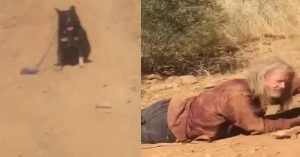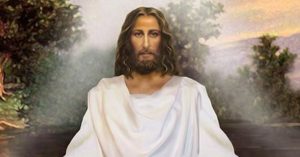The Association for Library Service to Children, in a unanimous decision, stripped away a lifetime achievement award honoring Laura Ingalls Wilder for her contribution to the literature of children. As of June, it is now renamed the generic “Children’s Literature Legacy Award.”
Wilder’s books, the ALSC said, are now considered unacceptable, containing “expressions of stereotypical attitudes inconsistent with[ our] core values of inclusiveness, integrity and respect, and responsiveness.” In other words, America is not able to take in the narrow, and often fearful worldview of a young pioneer girl in the 1870s. Under the standards of today, it is very politically incorrect. Junot Diaz, the once unassailable author and activist, is among Wilder’s critics. Speaking at the January meeting of the American Booksellers Association, Diaz condemned Wilder for writing the lines, “There were no people. Only Indians lived there, “in her 1935 work” Little House on the Prairie. “Librarians, publishers and booksellers, Diaz said,” need to stop talking about diversity and start decolonizing our shelves. “This is the stuff of satire, the same reflexive liberalism that has led to safe spaces on college campuses or the expulsion of contrary guest speakers or the decrying of” ability “language like that.
What’s more, the ALSC has condemned Wilder despite — or possibly because of— the first deep biographical history of the author and her books. And it is a reckoning with our history in a broad sense.
The Pulitzer Prize and the National Book Critics Circle Award was once won by Caroline Fraser’s “Prairie Fires: The American Dreams of Laura Ingalls Wilder” (out in paperback today). Her historical biography not only strips the cozy lie of frontier life as shown in the books and television show “Little House,” but recognizes the racism and colonialism of the era.
As it turns out, Pa Ingalls wasn’t that far ahead of his time, nor as perfect as Wilder shown. He settled on land belonging to the Osage Indians. He dragged his wife from state to state and four daughters along with them, escaping debts and drought. Laura feared that she could be sold into servitude for a while. The only boy of the Ingalls died at the age of nine months, his existence never mentioned in the books of Wilder. The family barely survived days-long blizzards and a plague of biblical locusts that blacked out the sky from Saskatchewan to Texas.
The adult life of Wilder was not much easier. She married Almanzo Wilder at the age of 18, he was her senior ten years. She loved her husband, but struggled with him throughout debts and years of homelessness. Laura gave birth to a son in 1889; he died after just a month.
The “Little House” books were born out of desperation: her family had lost nearly everything in the Great Depression when Laura was in her sixties. Her books’ success exacerbated an already fraught relationship between mother and daughter— Rose grew up to become a famous writer and worked on the “Little House” series with her mother. Rose was anti-Semitic, as Fraser reveals, but there is no evidence that Wilder shared such prejudice.
In reality, Wilder was chastened when a reader complained about the offensive line implying Indians were not individuals in 1952. “The fault in’ Little House on the Prairie’ is perfectly right,” Wilder wrote to her editor. “It was my dumb blunder. Indians are individuals, of course, and I did not plan to indicate that they were not. “Since 1953, the line has read,” There were no colonists.
It is absurd and unfair to keep the opinions of someone from 1870 up to 2018 standards. As Fraser elucidates so brilliantly, Wilder’s mythology was partly a way to cope with her past.
The input of Laura Ingalls Wilder applies to help to set up children’s literature as its own genre— an achievement shared with her contentious predecessor Mark Twain. The answer is not to ban books that make us uncomfortable or upset— it is to teach kids how to critically read and think.
As Fraser lately wrote in the Washington Post, “Whether we love Wilder or hate her, we should know her … every American — including the children who read her books — should learn the harsh history behind her work.”




